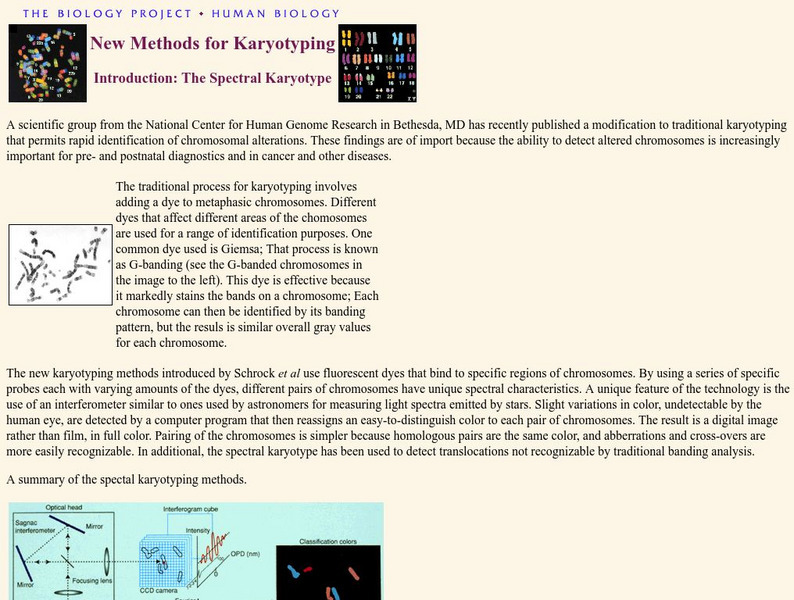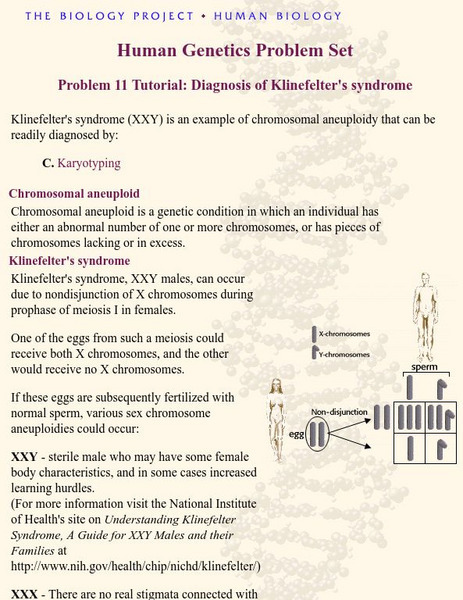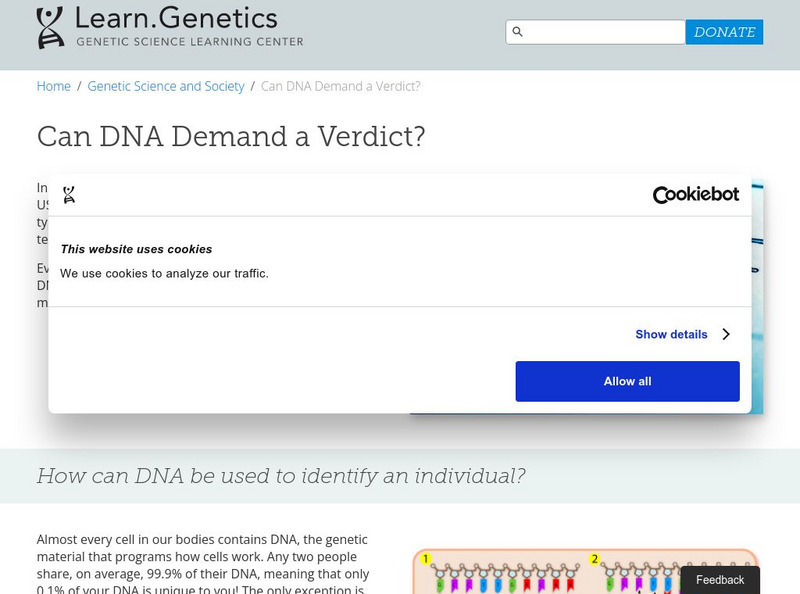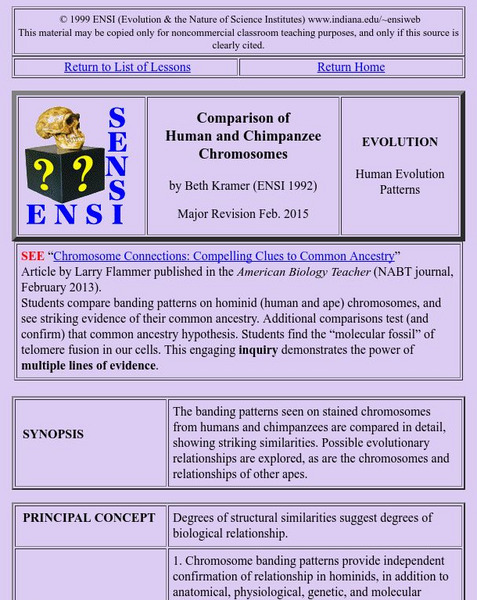University of Arizona
Biology Project: Karyotyping Activity
Try your hand at matching chromosomes to complete the karyotype in this simulation. Simulation contains karyotyping activity for three different patients and students can explore whether those patients have any genetic disorders.
University of Arizona
Biology Project: Karyotyping Activity
If you want an interactive way to practice karyotyping, this is it. There are three patient histories and karyotypes to use in diagnosing human genetic disorders. There is enough information on comparing chromosomes to get you started.
University of Arizona
The Biology Project: Human Biology: New Methods for Karyotyping
Read about the findings from the scientific group from the National Center for Human Genome Research, which published a modification to traditional karyotyping that permits rapid identification of chromosomal alterations.
CK-12 Foundation
Ck 12: Biology: Human Chromosomes and Genes Study Guide
This comprehensive study guide covers the main terms and concepts needed for a unit on human chromosomes and genes.
CK-12 Foundation
Ck 12: Biology: Genetic Disorders
[Free Registration/Login may be required to access all resource tools.] Discusses how mutation or abnormal numbers of chromosomes result in genetic disorders.
University of Arizona
Ua: Diagnosis of Klinefelter's Syndrome
Brief tutorial dealing with Klinefelter's diagnosis. Provides illustration of nondisjunction and Klinefelter's karyotype. Information provided regarding other sex chromosome aneuploidies.
University of Utah
University of Utah: Genetic Science Learning Center: Dna and Verdicts
Part of a site on genetics, this page explores DNA as a forensic science. Explains how and why DNA can be used to convict or acquit a criminal from wrongdoing using forensic DNA analysis. Teacher resources too.
Indiana University
Ensi: Comparison of Human: Chimpanzee Chromosomes Lesson
This is a great lesson plan that combines Karoytypes and evolution. Students will recognize that the chromosomes of chimpanzees and humans are remarkably similar, then correlate that to their evolutionary relationship.









